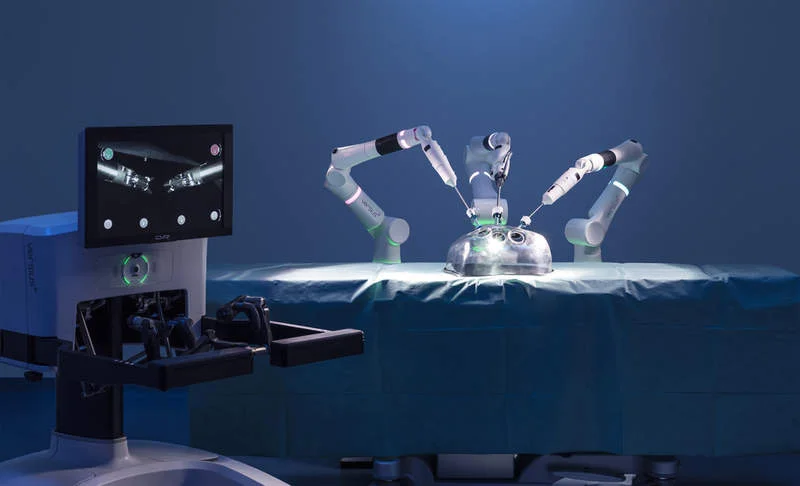If you’re like me, you might be concerned about how AI is getting so much better, so must faster. Just check out this deepfake video below…that was 7 years ago. Imagine what could happen in the future.
AI holds a lot of power to do both good and bad, and as humans, we tend to look towards the negative side of things. However, there is a lot more potential for AI in healthcare. At the same time, I am integrated in the world of medicine, and share some sentiments with doctors, medical students, and pre-meds. I would like to outline that, while AI could definitely bring a lot of unforeseen harm our way, it is almost an obligation for us to continue anyways.
Privacy
Perhaps one of the biggest concerns about AI in medicine is privacy. AI is currently programmable, and anything programmable can be hacked. The idea that your private health information can be exposed due to technical negligence is terrifying.
In fact, it might not even be negligence. All it takes is a talented hacker to perform data breaches and your sensitive health information is out in public. The largest data breach in medicine occured in Anthem Inc, involving the files of 78.8 million Americans. Plus, there is a hacker attack every 39 seconds. Not only that, but social networks can collect mental health data without the users’ permission, and some unregulated genetics testing companies can sell information to pharmaceutical companies.
Whether it be data breaches, the accuracy in the data, or even bias in technology , the healthcare industry has work to do to assure patients of its safety. There are a few ways that AI could be regulated. For example, multi-factor authentication and biometrics (such as fingerprints), could be used.
Ethics
Some also raise the question of whether AI is even ethical. There have long been inequalities, not only in healthcare, but in virtually every branch of study in life. With more unaffordable, innovative technology coming into healthcare, why should it be limited to only the ultra-rich? The Neuralink chip (Telepathy) will most likely have a net cost of $10,500 — a price not many people will be able to afford. Additionally, many people could lose their jobs as AI grows. With improving surgical robots and AI nurses in particular, doctors and nurses’ careers are threatened.
To answer the first question, all innovation starts off highly expensive at the start. This is understandable, as all innovation tends to start off expensive – offloading the time and effort it took to research, get the materials, and perform the necessary marketing/labour. Over time, however, there are two possible scenarios. The design could become significantly cheaper to produce, like in the case of the PC. Or, in most cases, the demand increased and the company was able to generate a profit, allowing the price to lower and become more accessible to the public. An example of this is the flat-panel television. Both cases are examples of Moore’s Law.
Of course, that doesn’t answer the fact that when new innovation starts off, it is always the rich who can afford it. Billionaires, global celebrities, you name it. Unfortunately, I think that’s just a part of reality. The short time in the beginning of the rise of a new innovative technology will involve only wealthy patients. However, I’d say that is a small moral concession to make in order for the technology to truly be accessible and help everyone in the future.
For the second question, I believe that, at least in the next few centuries, AI will not have the power to completely render doctors and nurses obsolete. For example, photographers once worried that AI would replace their profession. Not only has it not replaced photographers, but it increased appreciation in the field, opening up even more jobs. ATMs didn’t replace banktellers, but rather increased their need made their lives easier. Currently, people are worried that AI could spell the end of human artists. Given the trend that AI has produced, it is likely that AI could increase the art field and bring more attention to human artists. Even now, art from real artists is more popular because of the ‘human emotion’ attached.
Similarly, AI could offer a range of new jobs at a pace that is adaptable. That, and it could possibly alleviate a lot of stress of the already-overworked healthcare staff. One neurosurgeon on Instagram reported working 145 hours in a week! New technology, such as ChatGPT, hold the potential to help facilitate the efficiency in hospitals, lower the stress levels of doctors and nurses, while keeping everyone’s jobs intact or slowly progressing towards newer ones.
The Power of AI
The healthcare industry in most parts of the world is struggling. In the past, someone could start practicing medicine at much quicker with nothing other than grades. Nowadays, there is so much more to learn (due to the abundance of knowledge and research), which is inherently a good thing but really slows down the pace of new medical staff entering the workforce. That, and the fact that the population in most areas of the world is blooming, spells for catastrophe in the form of long wait times, taking over a year to know your blood test results, and even running out of tools or people to treat patients. Charlene Snow of Canada, for example, waited 7 hours in the emergency room, gave up and went home. She passed away an hour later.
With AI, everything could change. Technology like ChatGPT could help with patient diagnosis, answering questions and engaging in conversation with patients, and producing suggestions or sources for doctors. This is, of course, after thorough regulation of the safety and purpose of ChatGPT.

AI is also able to help patients in ways that were never imaginable. Electronic Medical Records, MRIs and X-Rays, prostheses, data analytics, and radiotherapy are just a few examples of how AI has vastly simplified patient care. Devices like FitBit are able to relay information about patient health straight to doctors. VR headsets can be used for surgery practice, so surgeons can practice precision and make their mistakes there instead of on the surgery table. It could also help with mental health. AI hearing aids could also help deaf people communicate.
At this point, who even knows what the future holds.
What Now?
As we progress further as a society, it is important to take all of the concerns and harmful possibilities into heavy consideration. Everything AI-related has to be under strict guidelines, regulations, and constantly scrutinized. Still, the possibilities of AI are endless. There are too many avenues that AI could be used to help people for us to ignore. Taking everything into consideration, I would repeat my suggestion that the current and potential benefits of AI far outweigh the risks.


